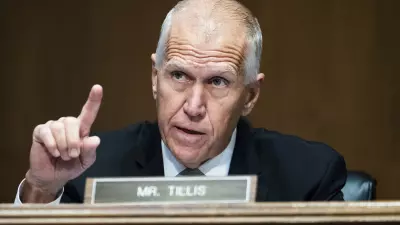HARRISBURG — Leaders of Pennsylvania’s beleaguered teachers’ pension fund are requesting that board members sign oaths of secrecy before receiving a critical update on the botched investment calculation scandal that has led to multiple federal investigations.

The chairman of the Pennsylvania Public School Employees’ Retirement System board told members in an email that they must sign a yet-to-be-drafted non-disclosure agreement to participate in a closed-door meeting later this month.
The meeting, scheduled for Jan. 31, is pivotal: Board members are poised to be presented with the findings of a taxpayer-funded inquiry into an investment calculation mistake in late 2020 that wrongly spared teachers a potential hike in their pension payments, leaving taxpayers to make up the difference over time. The calculation was later fixed, and teacher payments increased.
The inquiry was conducted by Womble Bond Dickinson, a law firm hired by the board last year to conduct an internal investigation into the error as PSERS coped with the federal probes. The system has agreed to pay Womble up to $367,600 in fees for its work, with partners collecting up to $695 an hour.
Open government advocates raised alarms over PSERS’ latest demand, saying it raises free speech concerns. They also questioned whether such an agreement by a government agency can even be enforced.
“There are some very significant issues that could arise with a government agency attempting to limit speech,” said Melissa Melewsky, media law counsel at the Pennsylvania NewsMedia Association, of which Spotlight PA is a member. “This is a matter of public concern, and the people who are in the meeting are often the best ones — and sometimes the only ones — who can expose government wrongdoing.”
In an email reviewed by Spotlight PA and The Inquirer, Board Chair Chris Santa Maria cited “advice from outside counsel” in asking board members and anyone else attending the meeting to sign non-disclosure agreements. The system’s lawyers, he wrote, would draft the agreement and circulate it to board members next week.
Santa Maria also asked that people attend the meeting in person, unless they show symptoms or test positive for COVID-19, though the email does not explain why in-person attendance is requested. Food and “ample amounts of coffee” will be provided, he said.
In a statement Friday, state Treasurer Stacy Garrity, who serves on the PSERS board, said her office suggested the non-disclosure agreements “as a possible solution in order to allow board members to participate remotely.”
“Treasury has not pressured for NDAs to be mandated,” she said.
Garrity and other top elected officials, including Gov. Tom Wolf and leading candidates in the race to succeed him, have called on PSERS to release Womble’s full report into the error.
PSERS did not respond to requests for comment about the unusual demand for a non-disclosure agreement. The agency also did not answer questions about what would happen if a board member refused to sign the agreement but demanded to participate in the meeting.
It’s unclear what authority, if any, PSERS has in requiring non-disclosure agreements by its board members. The state’s open-meetings law, known as the Sunshine Act, is silent on the issue, Melewsky said.
The law does allow public boards to hold closed-door sessions under certain circumstances, she said, but does not prohibit those who attended from later discussing what occurred.
The PSERS’ board is made up of volunteers, including four state lawmakers, the elected state treasurer, and two school board representatives. Five members are school staff.
In recent months, the agency has become increasingly upset over what it perceives as “leaks” about the investigation into the fund’s mistake and other matters being led by federal prosecutors and the FBI, as well a separate probe by the U.S. Securities and Exchange Commission.
During a closed-door board meeting last fall, Santa Maria and board member Frank Ryan, a Republican state representative from the Harrisburg area, said they were considering asking for an investigation into the disclosures. At the same meeting, they also raised the specter of non-disclosure agreements.
Matt Haverstick, a lawyer who represents one of the fund’s senior advisors, said Friday that he believes PSERS’ non-disclosure agreement request is appropriate. He contends that damaging and at times inaccurate information has been divulged that has hurt the constitutionally protected reputation of people who have worked for the agency.
The NDA, said Haverstick, “serves the good of protecting the integrity of a $70 billion public pension fund. It is preventing the board from being unfairly criticized. And it is protecting the reputation of actual human beings.”
Santa Maria’s request is the first direct indication that the agency is looking to contain the embarrassing string of disclosures about its internal performance.
This month’s update by Womble Bond Dickinson is expected to provide the first in-depth explanation for how the agency made the investment calculation mistake. The fund has never provided any explanation, citing the federal inquiries.
Last fall, Womble attorney Claire J. Rauscher warned board members that some staff could see the findings as damaging to their reputations, although she also disclosed that her inquiry had not turned up any criminal wrongdoing. She did not identify any staff or executive officer who is named in the report.
It is not clear what portion of the Womble report, if any, will ever become public.
State Sen. Katie Muth (D., Montgomery), a PSERS board member and the most outspoken critic of the agency’s secrecy surrounding the error, said Friday that she was surprised by the request, given that it’s “a public board that uses public funds.”
“I’ve never been asked to sign an NDA in my life,” said Muth. “Public servants shouldn’t hide information from the public.”
Muth last year hired lawyer Terry Mutchler to represent her in trying to obtain key PSERS records, including ones related to the calculation error.
In an interview Friday, Mutchler said she will ask the agency’s lawyers to provide a legal basis for their NDA request, which she called problematic and antithetical to government transparency.
“This is a moment for PSERS to let some sunlight in, as opposed to doubling down on secrecy,” she said.
WHILE YOU’RE HERE… If you learned something from this story, pay it forward and become a member of Spotlight PA so someone else can in the future at spotlightpa.org/donate. Spotlight PA is funded by foundations and readers like you who are committed to accountability journalism that gets results.







